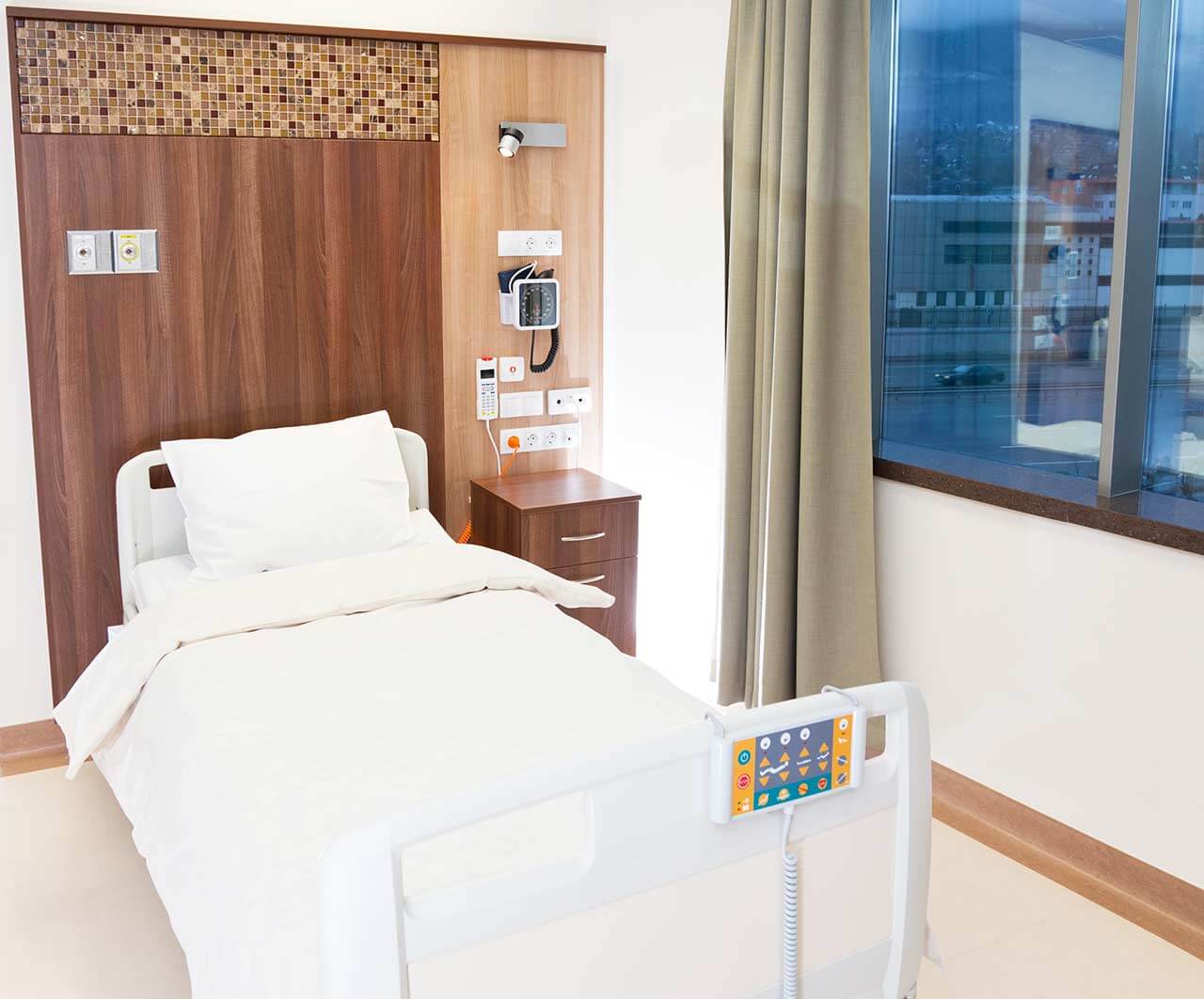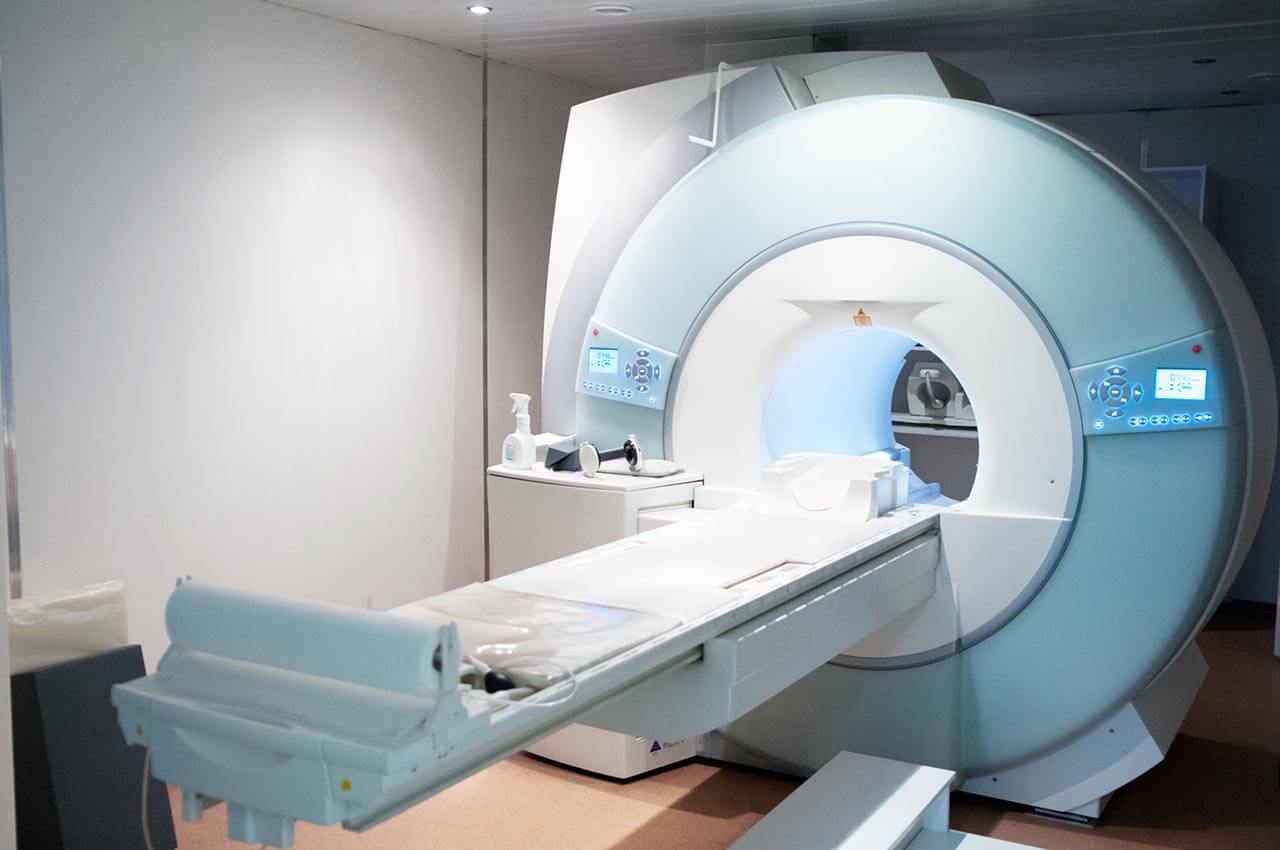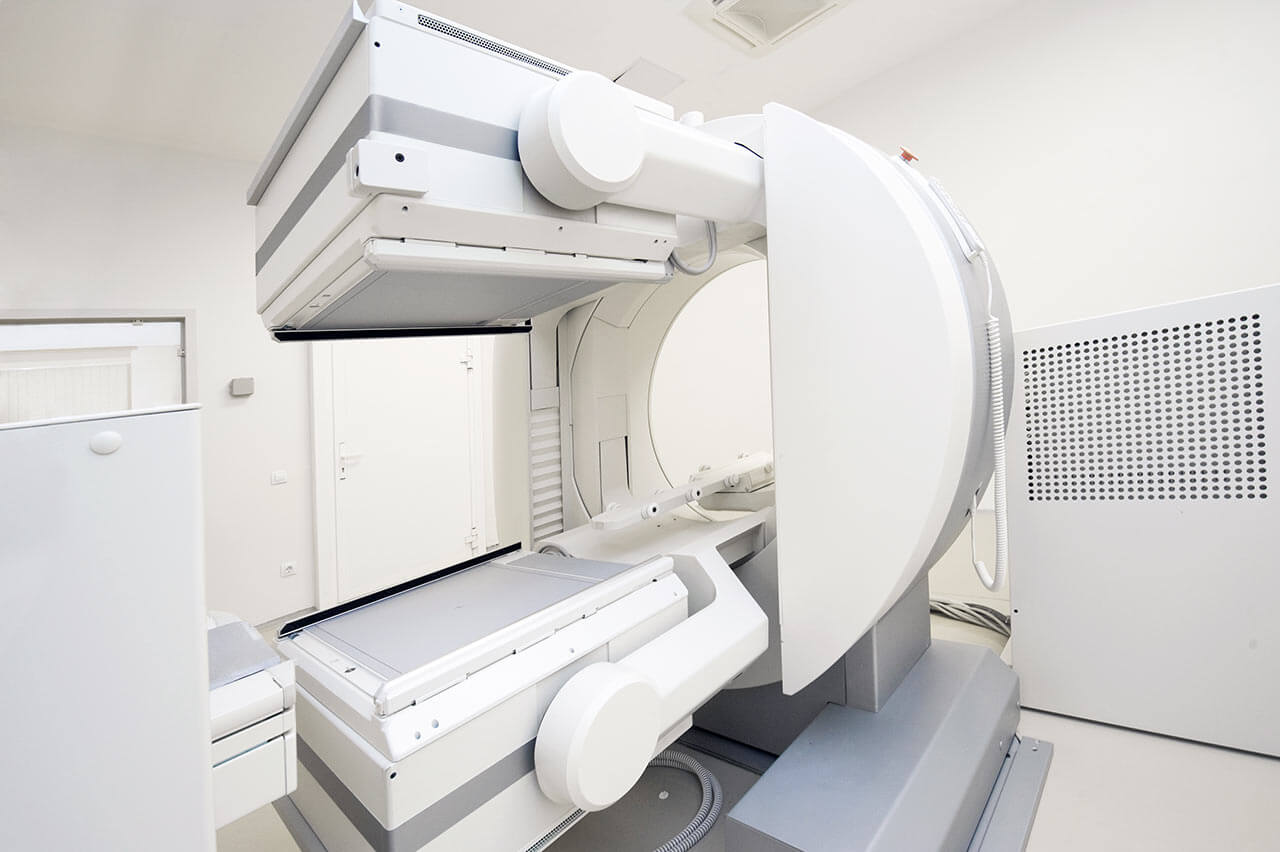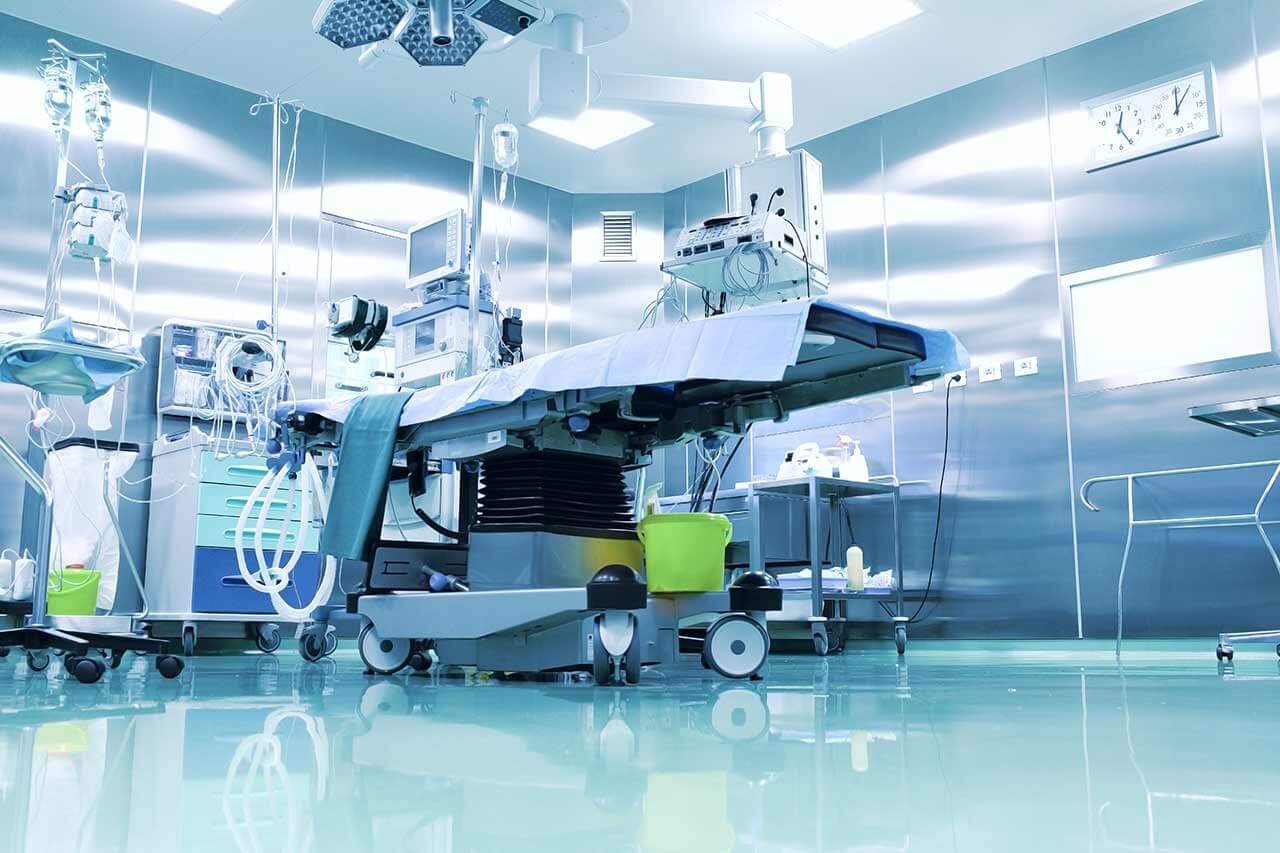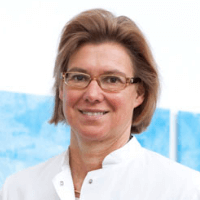
The program includes:
- Initial presentation in the clinic
- clinical history taking
- physical examination
- orthopedical examination
- x-ray of knee joint
- ultrasound of joint
- MRI scan of the knee joint (if indicated 1200 €)
- nursing services
- consultation of all leading experts
- development of individual treatment plan
Required documents
- Medical records
- MRI/CT scan (if available)
Service
You may also book:
 BookingHealth Price from:
BookingHealth Price from:
About the department
According to the Focus magazine, the Department of Orthopedics and Traumatology at the University Hospital Marburg UKGM ranks among the top German medical facilities specializing in the treatment of injuries of any severity!
The department offers the full range of diagnostic and therapeutic services to patients with diseases and injuries of the musculoskeletal system. The department has been certified by the German Society of Traumatology as a supra-regional Trauma Center. In addition, the medical institution is a certified Center for Gerontological Traumatology, the Center for Arthroscopy and Joint Surgery. The department is headed by Prof. Dr. med. Susanne Fuchs-Winkelmann.
The department has successful experience in the field of knee and hip joint replacement surgery. With appropriate indications, the doctors initially try to help the patient using conservative techniques (drug therapy, assistive orthopedic devices). The department specializes in primary and revision joint prosthetics interventions. In clinical practice, the doctors use only high-quality prostheses of world-famous manufacturers, which are distinguished by long-term service.
Another department’s priority is spinal surgery. The orthopedists of the department treat traumatic and osteoporotic spinal fractures, perform minimally invasive stabilizing interventions on the spine and conduct pain therapy for back pain. The specialists have special competence in the treatment of spinal tumors and spinal stenosis.
The therapeutic range of services of the department includes:
- Joint knee replacement surgery
- Conservative therapy for hip and knee arthrosis
- Knee and hip arthroscopy
- Primary hip replacement
- Primary knee replacement
- Revision Interventions
- Treatment of allergic reactions to implants
- Second opinion in complex cases
- Hand surgery
- Dupuytren's contracture
- Carpal tunnel syndrome
- Cubital tunnel syndrome
- Trigger fingers
- Ganglion
- De Quervain syndrome
- Finger joint cysts
- Hand tumors (enchondromas, sarcomas, lipomas)
- Rheumatic hand diseases (rheumatoid arthritis)
- Posttraumatic joint deformities and degeneration
- Hand and finger joint replacement surgery
- Rhizarthrosis
- Congenital deformities of the hand and fingers
- Ligament tears on the thumb of the hand (skier's thumb)
- Tendon injuries (injuries of the flexor and extensor tendons)
- Hand fractures
- Replantation
- Nerve damage (including nerve transplantation)
- Plastic surgery for hand defects and reconstructive surgery
- Pseudoarthrosis
- Avascular necrosis of the lunate bone
- Scapholunate ligament injury
- Arthroscopic surgery and sports traumatology
- Cruciate ligament replacement
- Meniscus injuries
- Cartilage injuries
- Knee ligament reconstruction
- Patellar dislocation
- Rotator cuff tear
- Shoulder instability
- Shoulder injuries
- Impingement syndrome
- Frozen shoulder
- Joint replacement surgery for shoulder osteoarthritis
- Foot surgery
- Hallux valgus
- Hallux rigidus
- Hammer fingers
- Flat feet
- Tendon dislocation sand ruptures
- Sparing minimally invasive treatment of injuries, for example, fractures
- Treatment of injuries in elderly patients
- Treatment for high severity injuries
- Pelvic surgery
- Spinal surgery
- Treatment of all traumatic spinal injuries
- Treatment of osteoporotic vertebral fractures (kyphoplasty and vertebroplasty)
- Minimally invasive stabilizing interventions for spinal injuries
- Treatment of spinal tumors
- Conservative treatment of back pain
- Treatment of spinal stenosis
- Reconstructive surgery to correct soft tissue and bone defects
- Other medical services
Curriculum vitae
Education
- 1986 - 1992 Study of Human Medicine at the University of Cologne.
- 01.06.1992 3rd state exam.
- 09.06.1992 Doctoral thesis defense.
Professional Career
- 1992 Intern, Department of Traumatology, St. Antonius Academic Hospital Eschweiler.
- 1993 Intern, Department of Traumatology, Clinic Duisburg-Buchholz.
- Since 1994 Research Fellow in the Department of General Orthopedics at the University Hospital Muenster.
- 29.08.1998 Board certification in Orthopedics, additional qualifications in Sports Medicine, Manual Therapy and Physiotherapy.
- Since 01.09.1999 Senior Physician of the Department of General Orthopedics at the University Hospital Muenster.
- Since 01.01.2000 Responsible for radiation protection.
- 04.05.2000 Venia legendi in Orthopedics. Paper subject: "Causes and possible methods of treating pain in the anterior knee joint after endoprosthetics".
- 2006 Board certification in Traumatology.
Executive Positions
- 01.04.2001 - 31.03.2004 Managing Senior Physician of the Department of General Orthopedics at the University Hospital Muenster.
- 01.04.2004 - 30.06.2005 Leading Senior Physician and Deputy Head of the Department of General Orthopedics at the University Hospital Muenster.
- Since 01.07.2005 Head of the Department of Orthopedics and Traumatology at the University Hospital Marburg UKGM.
Memberships in Professional Societies
- Founding Member of European Knee Associates.
- Member of the German Knee Society.
- Member of the Working Group on Oncological Orthopedics.
Photo of the doctor: (c) UKGM - Universitätsklinikum Gießen und Marburg GmbH
About hospital
The University Hospital Marburg UKGM offers patients modern diagnostics and comprehensive therapy at the international level. As a maximum care hospital, the medical facility specializes in all fields of modern medicine ranging from ophthalmology to traumatology and dentistry. The main areas of specialization of the hospital are surgery, neurosurgery, oncology, nephrology with kidney transplantation and children's medicine.
The hospital is the third largest in Germany. Every year, more than 436,000 patients are treated in two locations of the hospital (Giessen and Marburg): 342,000 in outpatient and 94,000 inpatient settings. The medical facility is the first privatized university hospital in the country.
The hospital staff makes a significant contribution to the development of research activities at the Faculty of Medicine of the Justus Liebig University Giessen and the Philipps University of Marburg. To develop new diagnostic and therapeutic methods, as well as to implement them into clinical practice, the specialists maintain active cooperation in a large number of areas.
The widest range of diagnostic and therapeutic services, the advanced infrastructure and technical base, high quality of treatment and professionalism of health workers contribute to the fact that the medical facility has an excellent reputation not only in Germany, but also far beyond its borders.
Photo: (c) depositphotos
Accommodation in hospital
Patients rooms
The patients of the University Hospital Marburg UKGM live in comfortable single and double rooms made in a modern design and light colors. Each room has an ensuite bathroom with shower and toilet. The pediatric departments provide patient rooms for the joint accommodation of mother and child. The standard room furnishing includes an automatically adjustable bed, bedside table, wardrobe, TV, telephone.
Meals and Menus
The patients of the hospital are offered balanced, healthy three meals a day: buffet breakfast, lunch and dinner. The private kitchen, certified according to DIN EN ISO 9001: 2000, is responsible for providing patients with food and drinks.
If for some reason you do not eat all foods, you will be offered an individual menu. The hospital also has a cafeteria with a large assortment of hot and cold drinks, snacks and desserts.
Further details
Standard rooms include:
Television
All patient rooms are equipped with TV sets. If you have some questions about TV use, please contact medical personnel.
Religion
Religious services can be provided upon request.
Accompanying person
During an inpatient program, an accompanying person can stay with you in a patient room or in a hotel of your choice.
Hotel
During the outpatient program, you can stay at the hotel of your choice. Our managers will help you choose the most suitable option.
